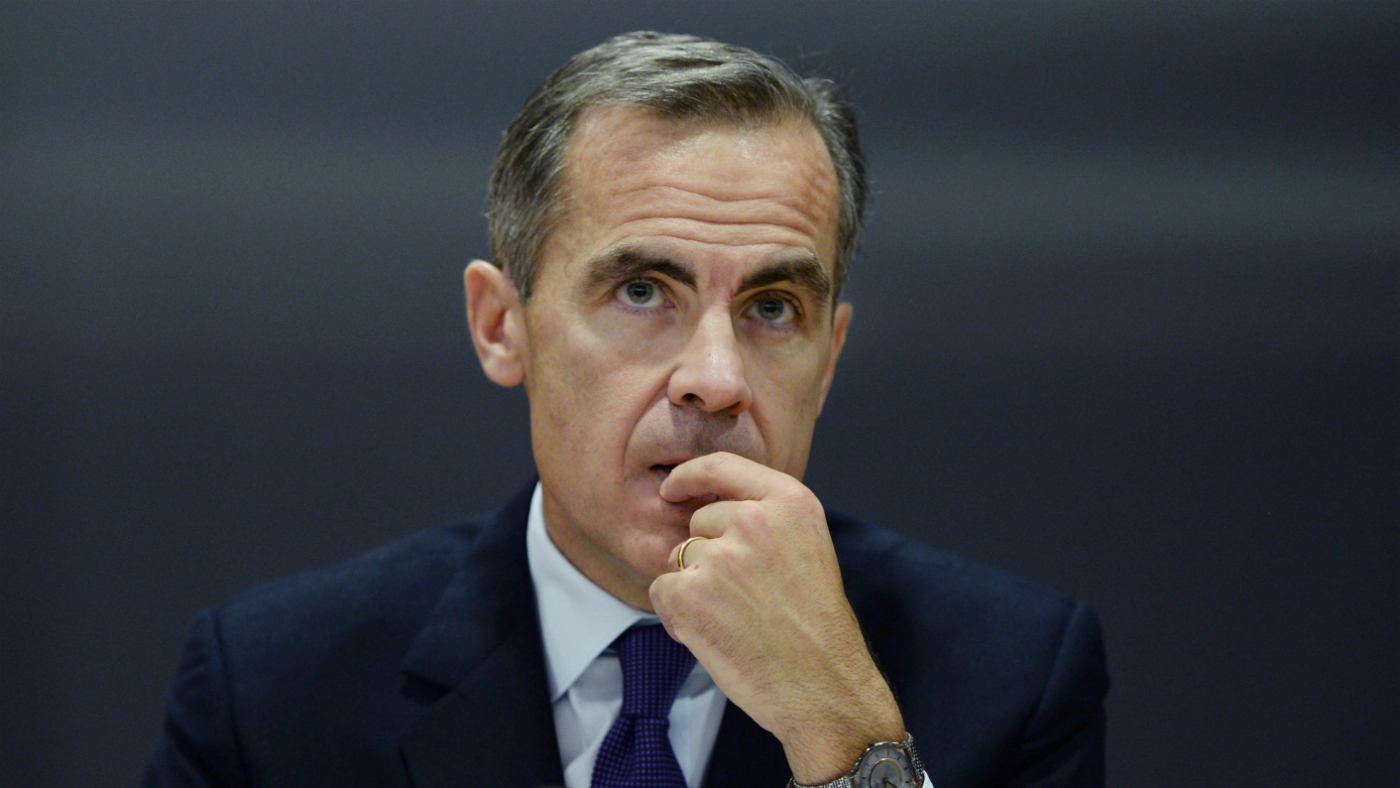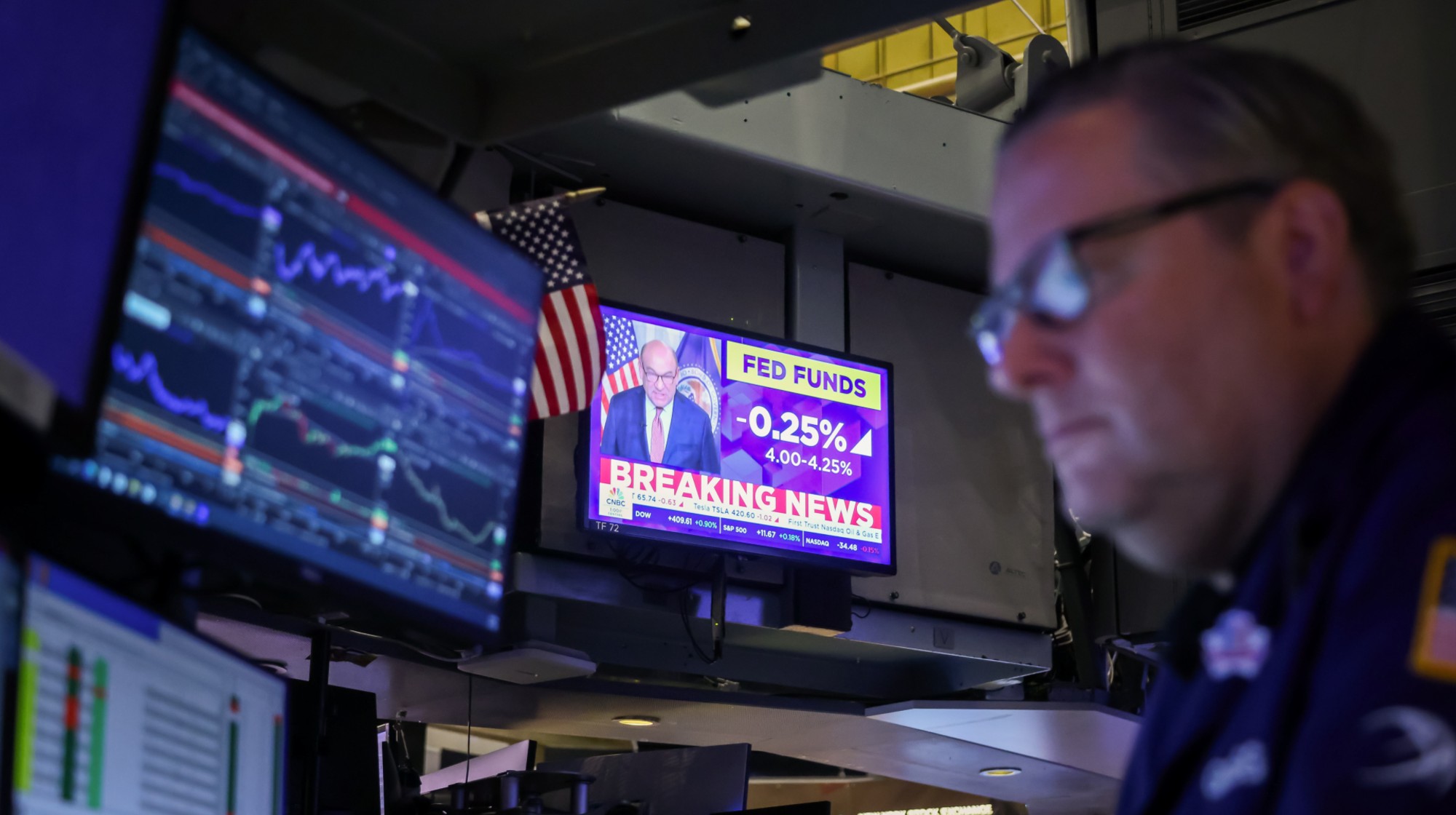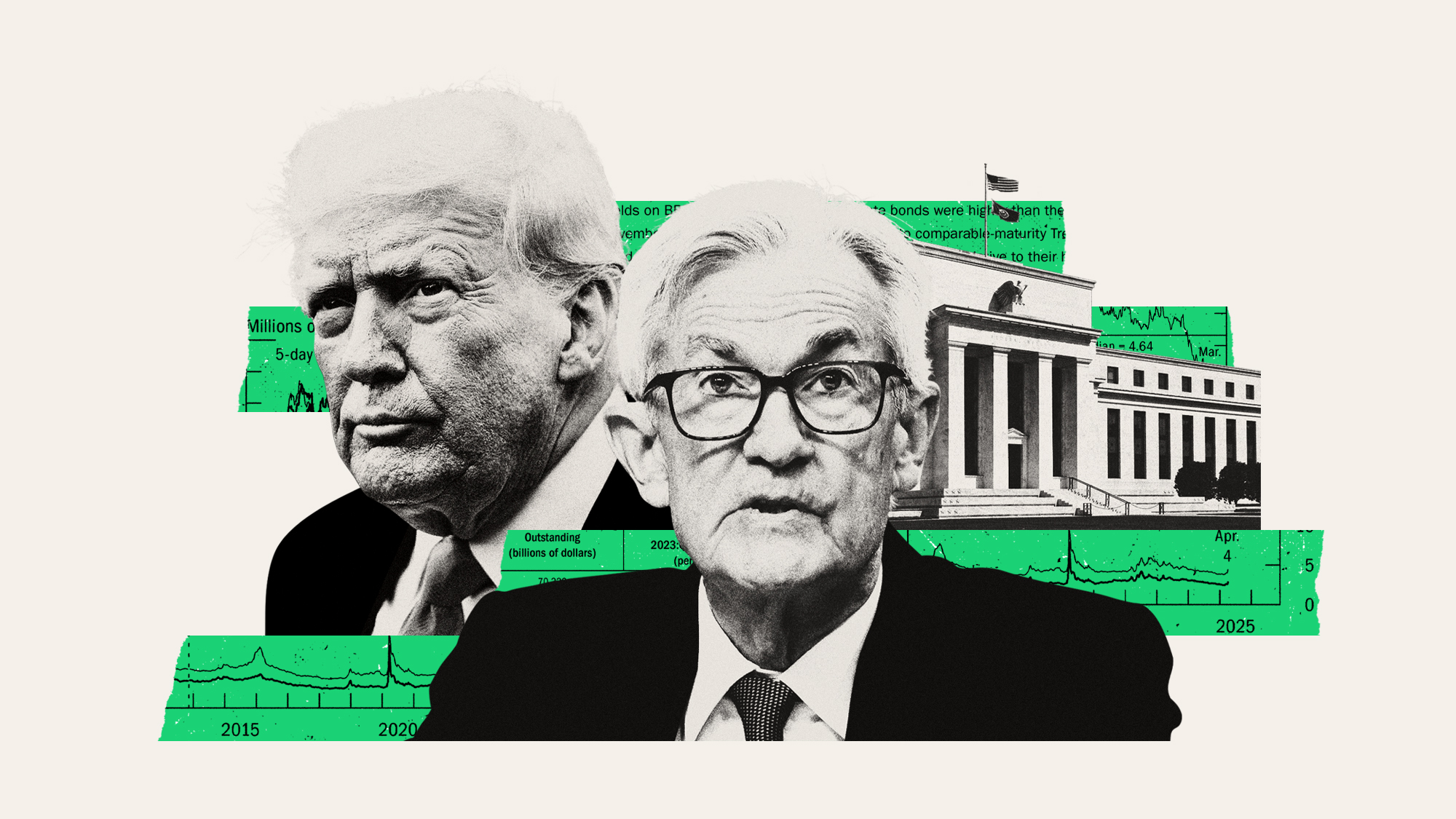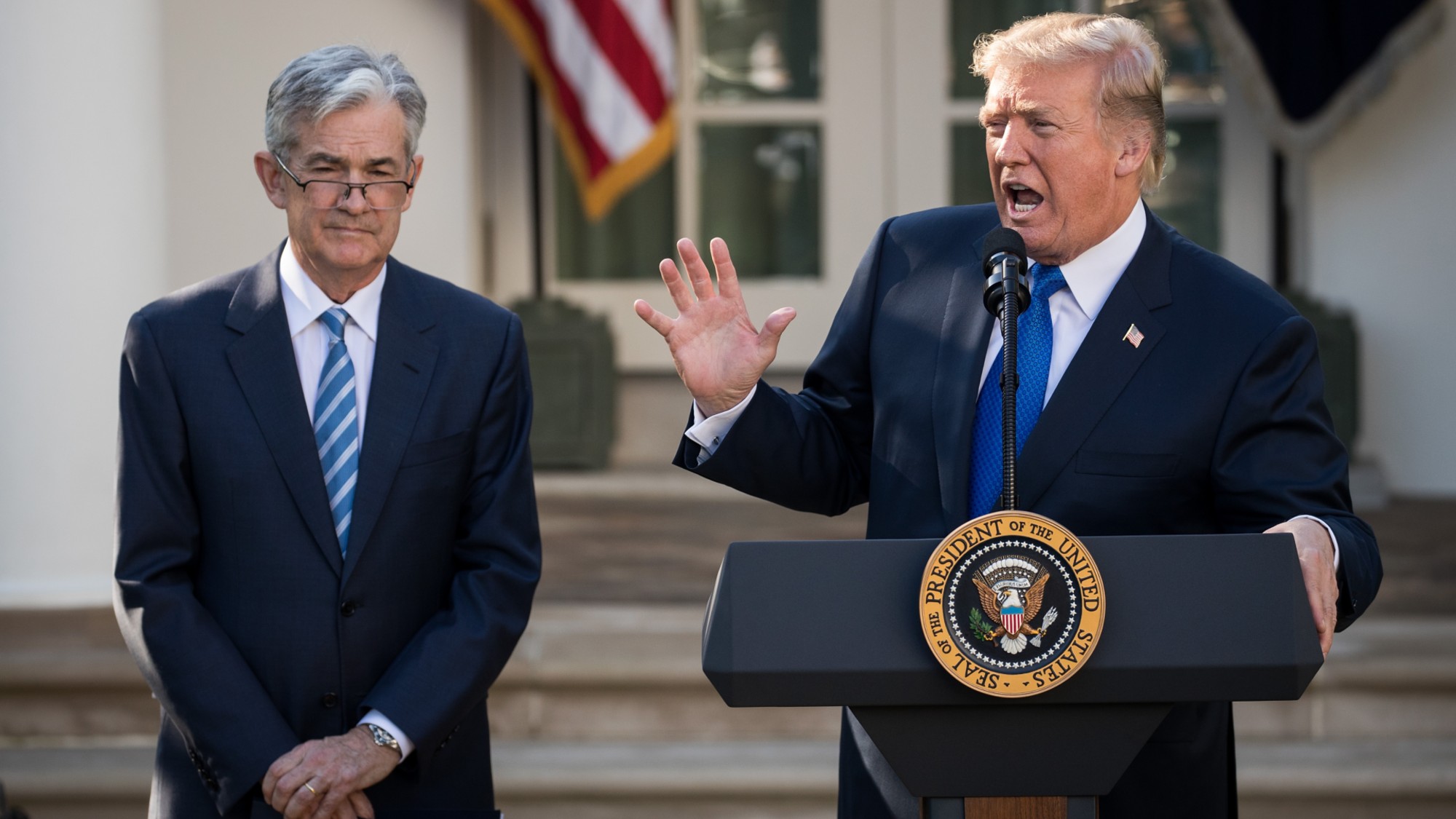Pound plunges after Bank of England's dovish rates signal
Central bank revises its growth forecast for UK economy

A free daily email with the biggest news stories of the day – and the best features from TheWeek.com
You are now subscribed
Your newsletter sign-up was successful
Four fears over negative interest rates and why they might be unfounded
18 February
At the end of last month, the Bank of Japan became the latest central bank to introduce negative interest rates. But after an initial boost, the considered assessment by markets of the policy appears to be strongly unfavourable. Here's four reasons why – and why one commentator thinks these fears are overblown.
1. It will hit bank profits
The Week
Escape your echo chamber. Get the facts behind the news, plus analysis from multiple perspectives.

Sign up for The Week's Free Newsletters
From our morning news briefing to a weekly Good News Newsletter, get the best of The Week delivered directly to your inbox.
From our morning news briefing to a weekly Good News Newsletter, get the best of The Week delivered directly to your inbox.
Charging banks to hold deposits eats into their earnings, which conventional banking wisdom dictates they will shy away from recouping by charging their customers. A consequent fall in interbank lending rates that are used to price mortgages adds to the squeeze on interest margins across the bulk of loan books, too.
Deriding the whole endeavour as a "dangerous experiment", investment bank Morgan Stanley said that once negative rates fall below 0.2 per cent, the damage to earnings goes "exponential", notes the Daily Telegraph. Thus bank shares have been slammed in the past month or so, with bank equities crashing by 32 per cent in Japan and by 26 per cent in the eurozone since early December.
2. It won't actually work
The whole idea of negative rates is to stimulate lending and boost inflation – after all, why would banks keep money stored at the central bank at a cost? "If an economy falls into persistent deflation it's in trouble: the real value of debts increases and consumers defer purchases," says Oliver Kamm in The Times.
A free daily email with the biggest news stories of the day – and the best features from TheWeek.com
It's possible, though, that the above-noted hit to profits will actually persuade banks to be more discerning and lend less, defeating the whole object. The policy is untested, so we don't really know.
3. It could kill banking as we know it
That all sounds a bit melodramatic, but commentators are citing it as one potential outcome. At the thin end of the wedge, the free banking we have become used to would be lost as banks seek to cover their deposit charges – at the extreme end, this in turn precipitates retail bank runs on what Kamm describes as a "grand operatic scale".
4. It's a sign that things are bad
Beyond these theoretical outcomes of the machinations of the policy, there is the general fear resorting to such unprecedented measures engenders. Central banks have been holding rates at record lows and printing money to support fragile economies for years now – and with the recovery from the crisis having never moved out of lower gears, there are fresh fears of a new crash.
Citing the failure of negative rates to boost markets, Chris Xiao and Vadim Iaralov, FX strategists at Bank of America Merrill Lynch, told Business Insider investors might be experiencing "policy exhaustion" and that markets may now "require ever-increasing accommodation to achieve the same outcome".
Or are these concerns unfounded?
According to Martin Sandbu, writing the Free Lunch column in the Financial Times, yes.
Firstly, along with the fears over a wider global economic crash – which even critics of the policy admit is unlikely – he also rejects the notion that banks are struggling. They're borrowing much less than in 2008 and their margins are still comparable to pre-crisis levels, despite reduced risk. So they can afford to make a bit less on their interest margins.
More importantly, even if banking as we know it did end, Sandbu says, it wouldn't be a doomsday scenario. Big banks shrinking leaves room for alternatives to diversify a narrow pool of funding for most economies, he argues, and the more likely scenario - that banks ditch free accounts and charge customers for new deposits - would indeed stimulate spending as intended.
Interest rates: does inflation rise and unemployment fall make hike more likely?
17 February
At first blush, latest official data on the economy paint a positive picture of a strong recovery that should support interest rate rises in the near future.
This morning, the Office for National Statistics said the number of people unemployed and looking for work had fallen by 60,000 in December, the BBC reports. The rate of unemployment held firm at a decade-low 5.1 per cent, while the employment rate rose again to a 45-year high of 31.4 million and the proportion of people who are economically active hit a near 25-year high.
The positive jobs data came on the back of yesterday's inflation figures that showed price rises had picked up for the third month in a row in January to a 12-month high of 0.3 per cent, notes the Daily Telegraph. Comparison with last January's brief oil price bottom reduced the magnitude of the fuel price fall last month, while alcohol and tobacco prices jumped markedly.
Interest rates are seen first and foremost as a way to contain inflation. With prices rising at a faster rate and the employment market strong, which would normally presage significant wage pressures that drive up labour costs and consequently force prices higher still, this would make the case for rates increasing.
Some might even argue the lag effect of interest rates' influence, coupled with the damaging consequences of asset bubbles that are seen to be building at a time of ultra-low rates, would encourage rates to rise sooner rather than later – and much sooner than market expectations for the freeze to last several more years yet.
No pressure
But rates are not likely to rise any time soon – and several of the reasons why can be found in the latest data releases. Firstly, wage rises are, in fact, stubbornly weak. Wages not including bonuses nudged up slightly by 0.1 per cent to two per cent in the three months to December, the Financial Times says, while wage rises including bonuses dipped by a similar margin to 1.9 per cent.
The Bank of England reckons low inflation is partly to blame for soft wage growth, which has been relatively flat for the past year as employers and employees alike settle for lower pay rises that still represent a decent boost to the cost of living. But alongside relatively weak productivity this is undermining the argument that price pressures are building.
And even the headline rate of inflation remains well below where some had thought it would be following the latest leg lower for the oil price. Last year, the Bank of England thought it would rise to one per cent, half of its target rate, by March. It now doesn't see this happening until much later this year at the earliest.
So ultimately, despite the positive headline news and solid economic growth, interest rates will stay low for many more months yet.
Interest rates: what signal is Yellen sending markets?
11 February
So, just what did Janet Yellen signal to the markets about the US Federal Reserve's thinking on interest rates last night?
In testimony before Congress, the central bank chairman acknowledged the issues across the global economy that are unsettling markets and could weigh on US growth with remarks that were seen by many as broadly dovish. She "dropped the broadest of hints that [the Fed] has put future US interest rate increases on hold", is The Guardian's take.
But at the same time, Yellen denied that a markets' wobble means the economy is going to crash, or that December's first US rate rise in a decade was simply a case of "one and done". She thus effectively confirmed the bank's rate-setting committee is "unlikely to reverse its plan to raise interest rates further this year", is how Reuters opens its report.
Which of these views is accurate? That depends on your own take on the economy and what should happen with interest rates.
Among those reading a more dovish message, the focus fell on her comments that "some of the weaknesses in the global economy have become self-reinforcing, with weak growth in major manufacturers like China and oversupply on commodity markets rattling the world's oil and mineral exporters", says CNBC.
Yellen said: "These developments, if they prove persistent, could weigh on the outlook for economic activity and the labour market."
Those of a more hawkish persuasion might instead point to her assertion that despite current jitters, "the labour market is continuing to perform well… [and] many of the factors holding down inflation are transitory".
The US "economy is in many ways close to normal", she said, citing below five per cent unemployment, which some suggest equals full employment, and rising consumer spending.
In this context, the "exceptionally" low interest rates that were initially an emergency response to the financial crisis seven years ago might appear out of place. So, failing a recession she does not think is likely, Yellen maintained guidance for "gradual adjustments in the stance of monetary policy".
Jim O'Sullivan, the chief US economist at High Frequency Economics, said: "The end result was no clear new signal relative to the last [Fed] statement, including no specific signal for March."
Traders remain confident there will be no rise in March or much this year, but Yellen is clearly keeping her options open.
Will UK interest rates be on hold for another four years?
10 February
A respected analyst has dramatically revised its forecast for UK interest rates, from a bullish call for a hike in the first quarter of this year to an ultra-dovish prediction that the current record low will be held until the end of the decade.
The Economist Intelligence Unit (EIU) was among many experts who believed rates would begin to increase in the earlier part of this year up, moving up from the 0.5 per cent at which they have been rooted since March 2009. The forecast was made last year, after a period of strong economic growth, falls in unemployment to pre-crisis lows and a marked pick-up in wages.
But after a spate of revisions by its peers, the unit has also changed its tune in response to a negative turn in the wider global economy, which both the Chancellor, George Osborne, and the Bank of England governor, Mark Carney (pictured above), have admitted will impact on UK growth. In a radical departure, it now says rates won't rise before 2020 – more than two years after even the bearish bet on markets at the moment.
"The BoE [Bank of England] is likely to delay policy tightening in 2019, largely on the basis of our forecasts that the US will experience a downturn in 2019, and rising levels of indebtedness in China will have become a greater source of risk by the end of our forecast period," EIU said, according to The Guardian.
Last week, the bank itself issued its latest inflation report, which downgraded UK growth for the next three years, cited unexpected "second round" weakness in wage rises as a result of persistently low inflation and generally sounded a more dovish tone on when rates might rise. As a result, market bets were pushed out to late 2017, at the earliest.
This morning, Baron Turner of Ecchinswell, the former chairman of the Financial Service Authority, told the BBC that without radical new policies, the UK could see "indefinitely" low rates. Lord Adair Turner's not as pessimistic as the EIU's number-crunchers, however, suggesting that rates could get up to a historically low two per cent by 2020.
This is probably about in line with hints from rate-setters, who emphasised rates are "more likely than not" to increase earlier than markets expect within the next two years and possibly at a faster pace.
-
 Health insurance: Premiums soar as ACA subsidies end
Health insurance: Premiums soar as ACA subsidies endFeature 1.4 million people have dropped coverage
-
 Anthropic: AI triggers the ‘SaaSpocalypse’
Anthropic: AI triggers the ‘SaaSpocalypse’Feature A grim reaper for software services?
-
 NIH director Bhattacharya tapped as acting CDC head
NIH director Bhattacharya tapped as acting CDC headSpeed Read Jay Bhattacharya, a critic of the CDC’s Covid-19 response, will now lead the Centers for Disease Control and Prevention
-
 Powell: The Fed’s last hope?
Powell: The Fed’s last hope?Feature Federal Reserve Chairman Jerome Powell fights back against President Trump's claims
-
 The end for central bank independence?
The end for central bank independence?The Explainer Trump’s war on the US Federal Reserve comes at a moment of global weakening in central bank authority
-
 Who will be the next Fed chair?
Who will be the next Fed chair?Today's Big Question Kevin Hassett appears to be Trump’s pick
-
 Should Labour break manifesto pledge and raise taxes?
Should Labour break manifesto pledge and raise taxes?Today's Big Question There are ‘powerful’ fiscal arguments for an income tax rise but it could mean ‘game over’ for the government
-
 What are stablecoins, and why is the government so interested in them?
What are stablecoins, and why is the government so interested in them?The Explainer With the government backing calls for the regulation of certain cryptocurrencies, are stablecoins the future?
-
 Fed cuts interest rates a quarter point
Fed cuts interest rates a quarter pointSpeed Read ‘The cut suggests a broader shift toward concern about cracks forming in the job market’
-
 Trump's threats to fire Jerome Powell are unsettling the markets
Trump's threats to fire Jerome Powell are unsettling the marketsTalking Points Expect a 'period of volatility' if he follows through
-
 How will Wall Street react to the Trump-Powell showdown?
How will Wall Street react to the Trump-Powell showdown?Today's Big Question 'Market turmoil' seems likely